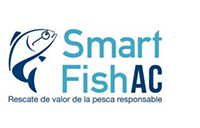Latin America
Small-scale fisheries underpin the livelihoods, food security and social fabric of coastal communities across Latin America. Dedicated, culturally- and context-relevant approaches which focus on the livelihoods and well-being of seafood harvesters are the starting point for fishery improvement and sustainable seafood in Latin America.

Across Latin America the small-scale fisheries sector directly employs millions of people and supports millions more who rely on these fisheries for food and livelihoods.
Countries such as Chile, Peru and Ecuador border the Humboldt Current System, which is home to roughly 20% of the total worldwide production of wild-capture of marine fish, including sardines, anchovies, hake, squid and tuna. Fish consumption in Latin America is growing at a staggering rate, expected to increase by 33% by 2030. Despite their importance to local economies and food security, disproportionately few sustainable seafood certifications and fishery improvement initiatives have focused on understanding the challenges and needs of Latin American small-scale fisheries.
The majority of sustainable seafood efforts in the region to date have largely focused on policy- and market-based approaches, which have had success outside of Latin America. However, these approaches focus exclusively on fisheries’ environmental performance and rely on demand from northern markets, making them of limited use for the Latin American small-scale fishery context.

Throughout Latin America, marginalization, poor management and lack of investment leads many fishers to sell poorly handled, low quality fish for low prices to limited markets, which drives the need to catch ever more fish in riskier and environmentally harmful ways to make ends meet. This drives a vicious cycle of overfishing and jeopardizes the ocean life on which we all depend.
We are building on a tried and tested business driven approach to seafood production in Latin America to ensure social, financial and environmental sustainability for small-scale fisheries.
This new, business development first model was originally developed by Dr. Hoyt Peckham and his team at SmartFish working with fisheries in Baja, Mexico. Building on their results and methodology, Ocean Outcomes and partners are scaling the approach across Latin America.
Working with core implementing partners on the ground, including SmartFish and Conservation International, as well as a broad range of relevant stakeholders, our triple bottom line seafood approach is producing results across Costa Rica, Guayana, Mexico and beyond.
Stories from the Field: Latin America
- Insights from Our Work on the Water — 2025 Reflections and Looking Ahead to 2026
- Human Rights Day 2025 - Advancing Dignity and Decent Work in Global Fisheries
- Assessing and Addressing Social Risks in Fishery Improvement Projects
- Announcing Three Exciting New Appointments to Ocean Outcomes’ Gifted Board of Directors
- Scaling Holistic and Human Rights-Centered Approaches to Small-Scale Fisheries Sustainability
- National Geographic Lead and Professor of Marine Science Join O2 Board
- Advancing Community Based Fishery Improvement Projects in Costa Rica
- Now Addressing Social Needs in Fishery Improvement
- New Global Platform Connects Small-scale Fishers to Improve Sustainability, Livelihoods
- A New Approach to Fisheries Conservation Investments
- Draper Richards Kaplan Foundation Invests in Ocean Outcomes
- Triple Impact FIPs - Improving Fisheries' Social, Economic and Environmental Performance
- Conservation International, Ocean Outcomes Seek a More Sustainable Global Seafood Supply Chain
- Three Leading Entrepreneurs and Ocean Campaigners Join Ocean Outcomes to Scale Sustainable Seafood Movement
- Committing to Socially Responsible Seafood
Meet SmartFish
 SmartFish Rescate de Valor, AC is a non-profit organization founded in 2013 with the mission of fostering a market for environmentally sustainable and socially responsible seafood in Mexico. To catalyze supply of environmentally sustainable and socially responsible seafood, SmartFish incubates artisanal fisher cooperatives to optimize their fishing, handling, processing and commercial capacities, thereby rescuing the value of their landings. To generate demand for sustainable seafood, SmartFish recently launched a buyer engagement project to assist large buyers, namely retail companies, to analyze their supply chains and develop and implement sustainable sourcing policies. SmartFish’s buyer engagement model is based on the experience of the members of the Conservation Alliance for Seafood solutions. www.smartfish.mx/
SmartFish Rescate de Valor, AC is a non-profit organization founded in 2013 with the mission of fostering a market for environmentally sustainable and socially responsible seafood in Mexico. To catalyze supply of environmentally sustainable and socially responsible seafood, SmartFish incubates artisanal fisher cooperatives to optimize their fishing, handling, processing and commercial capacities, thereby rescuing the value of their landings. To generate demand for sustainable seafood, SmartFish recently launched a buyer engagement project to assist large buyers, namely retail companies, to analyze their supply chains and develop and implement sustainable sourcing policies. SmartFish’s buyer engagement model is based on the experience of the members of the Conservation Alliance for Seafood solutions. www.smartfish.mx/